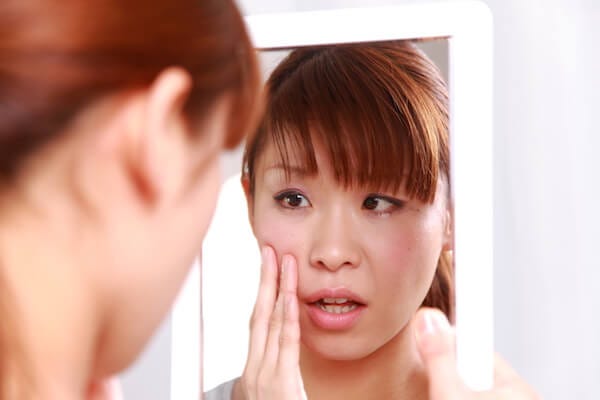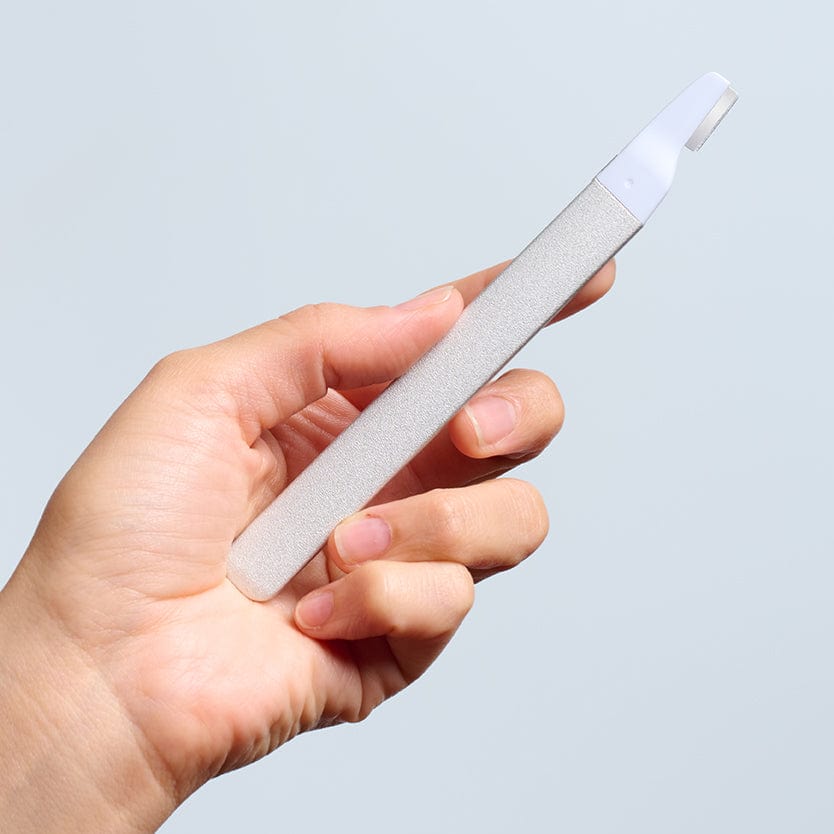Why Do I Get Blotchy During That Time Of The Month?
Written by Kerry Benjamin

The dreaded PMS breakout—it’s something most of us are all too familiar with and quickly brush off as just a pesky symptom of fluctuating hormones. But what’s with your suddenly blotchy complexion? Turns out, you have Aunt Flo to thank for that too. The hormonal changes that your body experiences in the first few days of your period can cause a myriad of skin disruptions including an increase in inflammation and redness.
Hormones & Your Skin
On the first day of your period, estrogen and progesterone levels in your body drop dramatically. Estrogen is an anti-inflammatory hormone; when it decreases, the body naturally experiences and increase in systemic inflammation. While estrogen levels drop on the first day of your cycle, your body simultaneously produces more of a chemical called prostaglandin to trigger contractions in the uterine wall. Prostaglandin causes blood vessels all over the body to constrict, increasing sensitivity to pain and causing flushed, red skin. The combo of low estrogen and high prostaglandin can cause skin redness all over the body. You may notice that skin is especially blotchy post-shower. You might even experience a slight increase in skin irritation and itchiness. If you have existing inflammatory skin conditions like rosacea or eczema, this fluctuation in hormones may even cause intense skin flare-ups, which can be especially distressing.
How to Soothe Hormonal Blotchiness
Up Your Antioxidants: To keep skin blotch-free during your period, switch to a moisturizer high in antioxidants and calming ingredients like witch hazel to soothe inflammation and reduce redness. My skin-soothing pick: Microbiome Rescue Daily Moisturizer
Keep it Cool: Cool water will help minimize inflammation in the skin. If skin is very red and bothersome, you can use an ice roller, they are super soothing on inflamed skin and don’t make any mess. This will also help reduce swelling and puffiness, another symptom of premenstrual hormone changes.
Eat Clean: Because your levels of anti-inflammatory estrogen are low, you should be especially careful about what you eat during your period. Stay away from milk, cheese and eggs, which contain anabolic hormones that can increase inflammation in your body. Rely on lots of water, leafy vegetables, and vibrantly colored fruits to reduce redness and swelling.
About the Author

Kerry Benjamin, a licensed aesthetician, has over 14 years of experience. Kerry is the driving force behind StackedSkincare. As the company's CEO, Kerry has dedicated her career to revolutionizing skincare. Her innovative approach combines peels, serums, and specialized tools to effectively address a wide range of skin concerns. CA LE license number Z98459.

